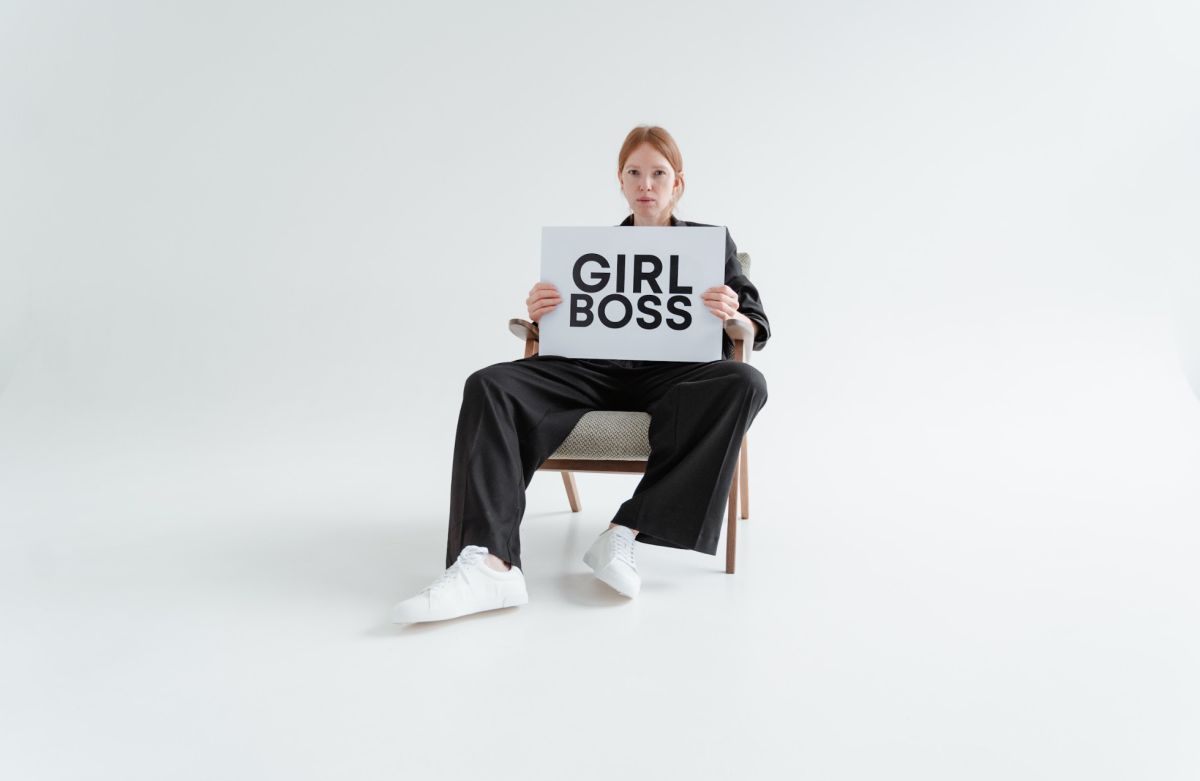The term “Girlboss” as defined by dictionary.com, is “a woman, especially a young woman, who is ambitious and successful in her career.” While this may seem like a great way to encourage women to be their own bosses and take charge of their own lives, it often has the opposite effect.
Let’s start from the beginning of this concept. In 2014, Sophia Amoruso, an American self-made businesswoman, launched her book #Girlboss. The book coined the term Girlboss and overall became a non-apologetic “boss babe.” Amoruso received praise for setting the feminist movement forward for years, but she also met heavy criticism for being hypocritical in her preachings. Many employees who worked at Amuroso’s company, Nasty Gal, accused her of creating an unhealthy and toxic work environment, raising questions about the idea of “girls supporting girls.”
Another issue noted with the Girlboss stereotype is its tendency to include those already seemingly well-off and privileged in society: white women. The Girlboss term is completely unrelatable to women in the working class.
To shed light on how the Girlboss term is a negative trope, I turned to Santa Clara High School student, Jeyah Khuraijam and Mountain View High School student, Ariana Tsur to give their thoughts.
Both Khuraijam and Tsur arrived at similar conclusions when asked about the concept of “Toxic Feminism” and the Girlboss mentality, saying it’s a very exaggerated and extreme version of feminism that is normally used to put down men. When discussing criticisms of the Girlboss stereotype, Khuraijam believed that it’s typically used sarcastically, but some take it to the extreme and use it as an excuse to be mean and put down others.
When asked about what they believe is toxic feminism, Tsur illustrated her point about toxic feminism with reference to a very prominent figure in music culture today: Taylor Swift. She referred to an instance at the Golden Globes where Tina Fey and Amy Poeler made a quip about Swift’s love life, as the hosts of the Golden Globes tend to poke fun at huge celebrities. Swift then proceeded to speak on Twitter, stating that “there’s a special place in Hell for women who don’t support women.” Tsur shared that her problem with this was that Poeler and Fey were known for making huge strides in comedy for women, especially in the early 90s, and that Swift was, “Weaponizing feminism against other women, which is disgusting to me. You should not be weaponizing it against women. She weaponizes feminism against other women to tell those women they can’t be mean to her. Which is a disgusting misuse of a movement that still is growing.” Tsur concludes that Swift, having such an enormous reach with young, impressionable female teenagers, may obscure their view of what feminism really is.
Some women in this day and age, like Swift, tend to use feminism to tear down other women. While Swift is a self-proclaimed “feminist,” in reality, she seems to only refer to feminism primarily when it serves her self-interest. Women who have such an influence in the world should really reconsider their stance on feminism. Rather than using it to tear down other women, they should use it as a means to uplift the spirits of others and advocate for women’s rights where they are least recognized.
Overall, the term “Girlboss” may sound appealing, but what hides beneath its surface often lies toxic, capitalist women finding an excuse to behave like their male counterparts and exploit women in the lower class. In fact, this concept often excludes working-class women. This severely puts the feminist movement at a disadvantage, diverting it from what it should be; fighting for equality, not trying to promote competition between women and their genders.







